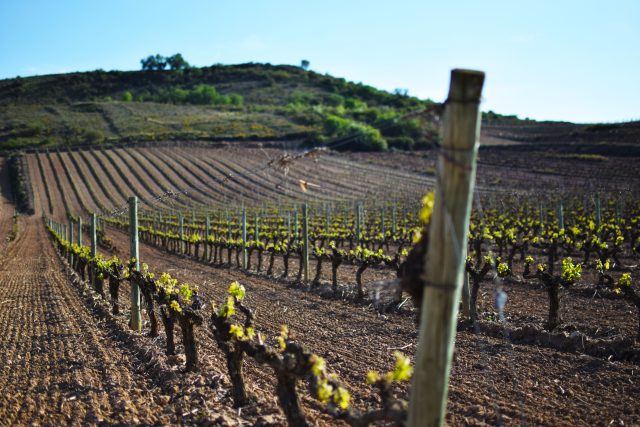Why it’s time to stop tilling your vineyard soils
By Patrick SchmittA powerful plea was made in London last night by French biology professor Marc-André Selosse for vignerons to stop ploughing vineyards due to the damaging effect of tilling on soil life and ultimately wine quality.

Selosse, who was present in London as a guest of Moët Hennessy, is an articulate and passionate scientist who has devoted much of his time and work to studying soils as the professor at the Muséum National d’Histoire Naturelle in Paris.
Due to his position, and mass of published papers on the role of ecology and mycorrhizae on plant life, he is a board member of Moët Hennessy’s World Living Soils Forum, which is a private enterprise committed to managing vineyards in a more sustainable manner.
During a discussion with db over a dinner that followed a press tour of an exhibition on soils at Somerset House – which you can read more about here – Selosse stressed the need for all farmers to work more closely with nature, rather than resort to damaging mechanical techniques and toxic man-made inputs, such as pesticides.
Not only did he advocate ditching herbicides, but also tilling soils, which is, as db has previously reported, one of the key tenets of regenerative agriculture, which aims not just to put an end to the degradation of soils, but encourage their regeneration.
How? The key message of regenerative agriculture is that if you leave a soil covered with a permanent mat of vegetation it will become an important store of carbon through the build-up of organic matter.
In turn, this enhanced biomass boosts soil life, as well as an improving moisture regulation – particularly in terms of water retention – while increasing below-ground aeration, and ultimately, fertility too, due to better nutrient recycling.
In short, the approach is meant to improve overall plant health, all to the benefit of eventual wine quality.
What was interesting about talking to Selosse were his views on how much damage is being done by the regular ploughing of soils, whatever the form of agriculture.
Indeed, he even told me that “tilling is more dangerous than Glyphosate” – the world’s most widely used weedkiller, which is believed to be carcinogenic.
Why does he see such a problem with ploughing? Because of the negative effect of turning the soil on biomass, which is quickly degraded when exposed to air and sunlight.
Partner Content
“If you stop ploughing, then soil microorganisms will increase by 30% even if you use Glyphosate,” he said, before adding that of course the ideal is to stop turning the soil as well as eschewing herbicides.
The problem with ploughing, he explained, concerns the fact it compacts the lower soil, which means, he said, “that you end up with a very thin layer of usable soil, which means a low amount of usable water and low nutrient availability” – a result of the fact that the lower level of hardened soil cannot be penetrated by the roots of the plants.
In essence he stressed that ploughing limits the fertility and water holding capacity of the soil, prompting him to tell db, “We have to reduce the amount of tilling in organic farming and suppress the use of Glyphosate in conventional farming.”
More generally, when it comes to soil and plant management in an agricultural setting, he said that “we have to look to nature before chemistry”.
He also said that there was a lack of understanding when it comes to the dangers of man-made compounds in wide and regular use today, and expressed his dismay at what he called a “push to abuse” when it comes to pesticide application in agriculture.
Drawing attention to the dangers of conventional agriculture, he said that in France, the risk of lymphomas was 50% higher in farmers, while saying that Parkinson’s disease among 55 year-olds was 13% greater for those working the land.
He also said that for people in France, 10% more vineyard surface area within 1km around a home entails a 10% higher chance of developing lymphoma.
However, when it comes to regenerating agricultural ecosystems, he gave this source of hope: “If you stop ploughing, then in two-three years your soils can recover, because they are not dead, just sleeping.”
Finally, he stressed the role of regenerative agriculture in sequestering carbon dioxide from the atmosphere. “If we increase soil carbon levels by 0.4% annually, it will be enough to offset the amount of Greenhouse Gas emissions produced by humans each year.”
Concluding, he said, “My message today is to say ‘wake up, but wake up fast’.”
Related news
Emiliana gains international regenerative agriculture accreditation




